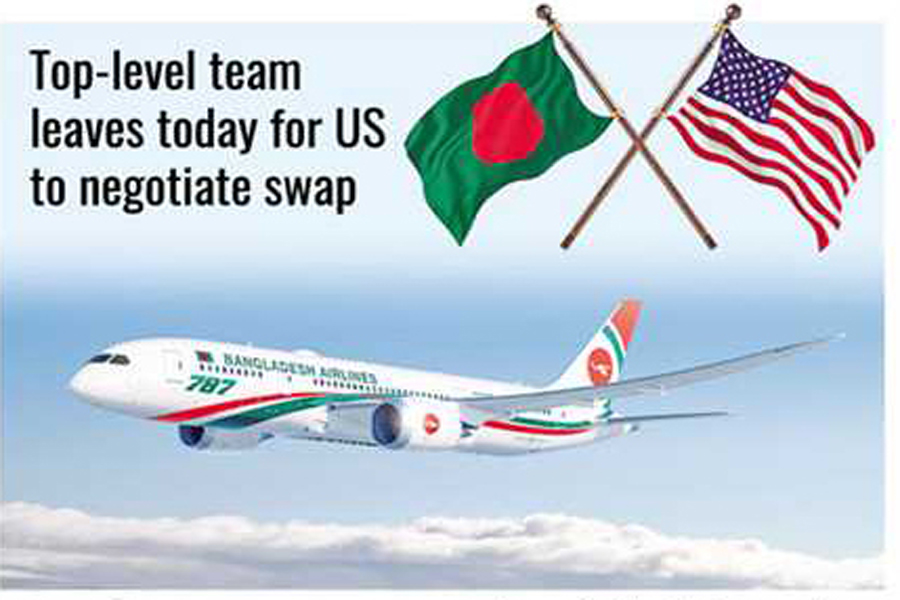ONLINE DESK
The government has placed an order to purchase 25 aircraft from U.S. aerospace giant Boeing, in a move aimed at narrowing the trade imbalance with the United States and averting a steep 35% tariff recently imposed by the Trump administration.
Commerce Secretary Mahbubur Rahman disclosed the development during a briefing with reporters at the Secretariat on Sunday. He noted that the aircraft purchase order was recently expanded from 14 to 25, and that additional imports of U.S. wheat, soybean oil, and cotton are also being planned to strengthen bilateral trade ties.
“We urgently need new aircraft over the next couple of years. Expanding Biman’s fleet has been part of our long-term aviation strategy,” Rahman said. “This year, in response to the reciprocal tariff issue, we increased our order to 25 aircraft.”
While the procurement is being conducted with Boeing, the secretary clarified, “It’s a commercial deal with the company, not the U.S. government.” He added that other nations, including India (100 aircraft), Vietnam (100), and Indonesia (50), have placed similar orders with Boeing, which will deliver based on production capacity and order sequence.
Most of Biman Bangladesh Airlines’ fleet is already comprised of Boeing aircraft. Under the previous Awami League administration, Bangladesh had committed to purchasing 10 wide-body planes from France’s Airbus, but that deal appears to have stalled under the current government.
The aircraft order is part of a broader strategy to reduce Bangladesh’s trade deficit with the U.S., which officials hope will persuade Washington to reconsider the newly imposed tariff. Additional steps include increasing imports of key agricultural goods.
“We’ve already signed a deal to buy wheat from the U.S.,” the commerce secretary said. “Private sector traders are also exploring larger soybean oil imports, and we plan to increase cotton purchases back to $1.8 billion levels.”
Three years ago, Bangladesh imported roughly $1.8 billion worth of U.S. cotton, but that figure has since declined. Rahman emphasized that reversing this trend could significantly improve trade balance projections.
On April 2, former U.S. President Donald Trump, in his second term, announced new tariffs on over 100 countries, with Bangladesh facing a steep 37% duty. After concerns were raised, Nobel Laureate and Chief Advisor Muhammad Yunus sent a letter to Trump urging a three-month deferral of the tariffs, which was granted.
Since then, Bangladesh has taken multiple steps to address the trade imbalance, including offering duty relief on 626 products in the national budget. Despite these efforts, the U.S. revised the tariff to 35%, which is set to take effect on August 1, hitting the ready-made garments (RMG) sector hardest — Bangladesh’s largest export industry and the U.S.’s single biggest source of Bangladeshi imports.
To address the issue, a high-level Bangladeshi delegation, led by Trade Advisor Sheikh Bashir Uddin, will depart for Washington, D.C., on Monday to engage in a new round of trade talks with the U.S. Trade Representative’s office (USTR).
National Security Advisor Khalilur Rahman is also expected to attend the key meetings, scheduled for July 29–30, with potential follow-up discussions on July 31. The government hopes to reach a resolution before the new tariffs take effect on August 1.
“If the negotiations succeed, we may be able to avoid or defer the tariff,” Secretary Rahman added, expressing cautious optimism about the outcome.


